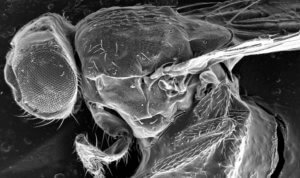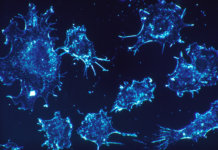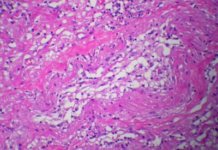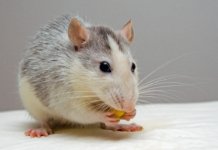Longevity regulation: pioneer research
A recent study in Proceedings of the National Academy of Sciences revealed the importance of the mitochondrial protein Sirtuin 4 (Sirt4) in regulating the metabolism and longevity of drosophilia. This is the first study to show the role of the Sirt4 activity levels in lenghtening the lifespan of drosophila.

The experiments so far have shown that an overexpression of the gene triggered a longer lifespan in drosophila ; up to 20% longer. Genetically modified drosophila who did not have the protein in question saw their lifespan drop by 20% [1].
It was also shown that drosophila that don’t express their equivalent of the Sirt4 gene are not able to use the stored energy to overcome the effects of caloric restriction. This reduced their physical activity and fertility [1].
The results show the importance of the Sirt4 protein in metobolic homeostasis, and especially in fasting response, which ensures the survival of an organism. Overexpression of the protein leads to a longer life which suggests that increasing the activity of the SIRT4 gene will have beneficial effects on metabolism and longevity.
What about SIRT4 in humans?
In humans, Sirt4 is a mitochondrial protein with NAD+ dependent lysin deacylase activity, from the sirtuins family [2, 3]. There are 7 isoforms of the protein in humans, from Sirt1 to 7. They regulate metabolism and stress response, and they are therapeutic targets for age-related diseases, such as metabolic diseases and neurodegenerative diseases [4]. In humans, Sirt4 mainly regulates the metabolism of fatty acids, and apoptosis [4], but it remains one of the lesser known sirtuins.

Such results on a drosophila model could inspire more studies to understand the roles of Sirt4 in a human metabolism. On the longer run, these encouraging results are paving news ways for research on age-related metabolic diseases such as obesity and type II diabetes.
References
[1] Jason G. Wood, Bjoern Schwer, Priyan C. Wickremesinghe, Davis A. Hartnett, Lucas Burhenn, Meyrolin Garcia, Michael Li, Eric Verdin, Stephen L. Helfand. Sirt4 is a mitochondrial regulator of metabolism and lifespan in Drosophila melanogaster. Proceedings of the National Academy of Sciences, 2018; 201720673
[2] Rommel A. Mathias, Todd M. Greco, and Ileana M. Cristea. Identification of Sirtuin4 (SIRT4) Protein Interactions: Uncovering Candidate Acyl-Modified Mitochondrial Substrates and Enzymatic Regulators. Methods Mol Biol . 2016 ; 1436: 213–239
[3] ScienceDaily, Boosting Sirt4 gene activity extends healthy lifespan in fruit flies, 29 January 2018.
[4] Martin Pannek, Zeljko Simic, Matthew Fuszard, Marat Meleshin, Dante Rotili, Antonello Mai, Mike Schutkowski & Clemens Steegborn. Crystal structures of the mitochondrial deacylase Sirtuin 4 reveal isoform-specific acyl recognition and regulation features. Nature communications, 15 November 2017.
Anne Fischer

Author
Auteur
Anne is studying medicine science at the Institute of Pharmaceutical and Biological Science in Lyon and she has graduated with a Bachelor’s degree in molecular and cellular biology at the University of Strasbourg.
More about the Long Long Life team
Anne étudie les sciences du médicament à l’Institut des Sciences Pharmaceutiques et Biologiques de Lyon. Elle est titulaire d’une licence en biologie moléculaire et cellulaire de l’Université de Strasbourg.
En savoir plus sur l’équipe de Long Long Life
Dr. Marion Tible

Author/Reviewer
Auteure/Relectrice
Marion Tible has a PhD in cellular biology and physiopathology. Formerly a researcher in thematics varying from cardiology to neurodegenerative diseases, she is now part of Long Long Life team and is involved in scientific writing and anti-aging research.
More about the Long Long Life team
Marion Tible est docteur en biologie cellulaire et physiopathologie. Ancienne chercheuse dans des thématiques oscillant de la cardiologie aux maladies neurodégénératives, elle est aujourd’hui impliquée au sein de Long Long Life pour la rédaction scientifique et la recherche contre le vieillissement.
En savoir plus sur l’équipe de Long Long Life














